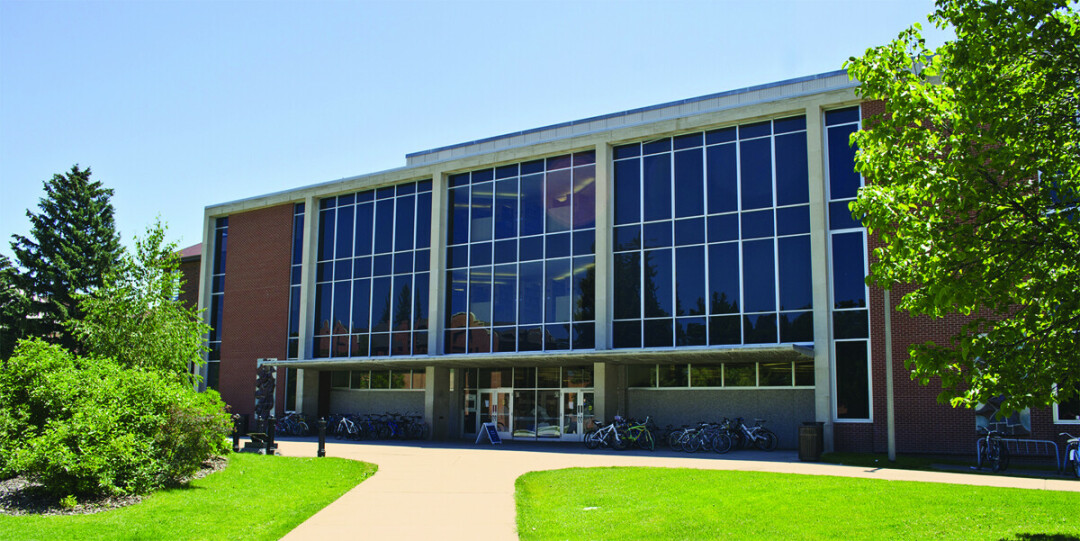TRAILS Heroes of Academic Libraries
 Renne Library photo wikipedia.com
Renne Library photo wikipedia.com
The backbone of nationwide communities for centuries, libraries have long been a beloved resource for learning, local support, and the preservation of culture. Few community institutions have been able to evolve through the significant technological shifts in recent years as seamlessly as libraries, which have been able to remain relevant even as the popularity of physical books diminishes. Through the establishment of technological resources such as online databases, creative, engaging activities, and essential outreach programs, libraries have proven that they’re here to stay. However, such resilience doesn’t mean that these institutions have been immune to struggle; consistent polls indicate that Americans visit and value their local libraries significantly less than they did even a decade ago. A staggering 59 percent of polled citizens report rarely or never visiting libraries, and a mere seven percent recorded doing so weekly. Because of these declining numbers, funding isn’t what it once was, and many libraries suffer because of it. Academic libraries are often forgotten even more; while students use them as a social and academic space, the local community often forgets to take advantage of publicly available resources. While prevalent within their schools, academic libraries such as Montana State University’s Renne Library risk slipping into community-wide neglect.
Though the situation seems dismal, all hope is not lost. Here in Montana, an organization called the Treasure State’s Academic Information & Library Services (a.k.a. TRAILS) has been providing academic libraries around the state with fiscal resources that support their continued community significance. Since its founding in 2016, the organization has had an enormous impact on Montana academic libraries like the one at Montana State University. TRAILS is a consortium, serving 25 member institutions. Over its eight years in business, it has provided over four million library items to establishments around the state, and has saved Montana libraries three million dollars after strategic negotiations for quality databases. This cost avoidance is projected to continue at a similarly impressive rate, a projected seven million over the next five years. TRAILS reaches a diverse number of libraries, such as Montana University System schools (MUS), private universities, and two-year and tribal colleges, ensuring that their impact is as widespread as possible. All of the many libraries that work with TRAILS commend the immense effect its financial assistance has on expanding and improving their resources, so that students and community members alike can have the best experience possible.
This important consortium’s success can be attributed to its dedicated faculty, who are passionate about the mission of supporting the treasure state’s academic libraries through these fiscally modern methods. TRAILS’ Statewide Academic Libraries Coordinator, Pamela Benjamin, is one such influential individual. Responsible for many essential duties, Benjamin has been helping shape the achievements of TRAILS since its founding.
Before she was hired at the consortium, Benjamin had extensive experience at a variety of libraries, from academic to special and public establishments. Hailing from Ohio (a state with many library consortiums), she saw the great impact these organizations had on their communities, and jumped at the chance to be a part of Montana’s only academic library consortium. Having lived in Montana in the 90’s, the transition was seamless, and Benjamin has been happily bettering the state of academic libraries ever since. A remarkably busy woman, Benjamin’s list of responsibilities is long. Much of her time is taken up by negotiations with members, a complicated process requiring strategic and lengthy communication. TRAILS also offers a variety of training services (such as professional development), which Benjamin conducts. I was fortunate enough to have the opportunity to speak with her amidst her full schedule, where she gave me some fascinating insights on TRAILS, and her role within the team.
“We help level the playing field for higher education in Montana,” Benjamin explains. Part of TRAILS’ mission is to provide an increased variety of resources to Montana’s academic libraries, while spreading the same databases statewide. This systematic consistency lowers the cost for libraries and students alike, and provides users around the state with equal access to information. With TRAILS’ help, similar information can be found whether you utilize Montana State University’s database or that of a two-year college. Additionally, the MSU Library’s affiliation with TRAILS helps it achieve the requirements for national accreditation, helping to uphold standards of educational excellence, and maintain library quality. Through the increase in resources, it is also possible for schools to develop their curricula more quickly, and to a higher standard of quality than would otherwise be possible. On all facets, academic libraries such as MSU’s would not be the same without the involvement of TRAILS.
Not an organization solely for students, TRAILS’ impact on general communities is often overlooked. Bozeman’s Montana State University library is open to the public; their beautiful in-person facilities and online resources are available to anyone interested in broadening their knowledge base. Hundreds of books, articles, documents, services, and activities are accessible to anyone, largely because of the opportunities TRAILS has awarded the library. Beyond the plentiful assets of libraries working with TRAILS, the company also plays a role in bolstering the local educational economy. As Benjamin says, “TRAILS is serving to strengthen the state’s research and knowledge-based economy.” Beneficial community-wide, TRAILS has quickly become an indispensable part of Montana.
Benjamin predicts a continued relationship with the MSU library, observing how “... libraries really cannot exist unto themselves anymore.” Montana State expressed its gratitude to the company in its last accreditation ceremony, appreciative of the opportunity to expand and increase the quality of their resources, achievements that would have been impossible without the involvement of TRAILS. This facility is not just for MSU students, so make sure not to miss out on this stunning establishment’s incredible resources. Similar content can also be found on TRAILS’ website through their public search page, open for users who are not currently in academia as well as for students. Don’t let these free assets pass you by, and be sure to thank TRAILS the next time you use resources from one of Montana’s academic libraries.
For more information regarding the mission of TRAILS or about the process of becoming a member, visit www.trailsmt.org.
To learn more about the MSU Library or utilize its online resources, visit www.lib.montana.edu.



